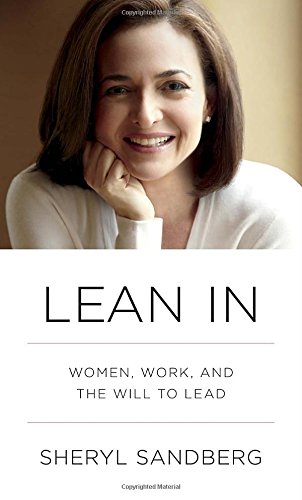A few years ago, Sheryl Sandberg, Facebook’s chief operating officer, set out to inspire both men and women with her “sort of a feminist manifesto,” Lean In. I can attest that she has done exactly that. Through a mix of humorous anecdotes and informative, compelling empirical evidence, Sandberg demonstrates how society does not encourage women to be more ambitious in their careers. She urges women to abandon the myth of “having it all,” and, instead, offers practical advice to women looking to combine professional achievement with personal fulfillment. I thoroughly enjoyed it, and you will too.
Insight
I have long considered myself a feminist. As Sandberg points out, this is a word that only around 20% of people identify with until you ask people if they support the “social, political and economic equality of the sexes” (feminism). Then, the number skyrockets to around 60% agreement. Even as a feminist man, I will still have biases and stereotypes of women that I have to overcome. You will, too – regardless of your gender. For example, both men and women expect men to be more successful. We also consider successful men more likable. Indeed, for women, success and likeability are negatively correlated. This is based on decades of social science research, with Sandberg specifically pointing to the “Howard and Heidi” case. Sandberg posits this bias is “at the very core” of why women are held back.
When women succeed, they attribute it to external factors (“I studied hard”) in contrast to men, who attribute success to innate qualities. Interestingly, there is inverse behavior when men and women fail at something. Women blame themselves for an inherent lack of ability while men blame external factors. Simply being aware of biases like these enables women and men to make better, fairer assessments and decisions while encouraging women to be more ambitious.
Men have a stake in leaning in too. While men should treat women as their equals in the workforce, we should also treat women as equals in the home. There is no reason why men should not do more cooking, cleaning, and child rearing. When men lean in, it’s good for marital stability and for children. “When fathers provide even just routine child care, children have higher levels of educational and economic achievement and lower delinquency rates. Their children even tend to be more empathetic and socially competent. These findings hold true for children from all socioeconomic backgrounds, whether or not the mother is highly involved.”
Why I Lean In
I lean in because I hope for a better world where women are leading half of our companies and countries, and men are leading half of our homes. This is a happier, more prosperous world with equal opportunity for everyone. I lean in for my female peers at my university who are told that the majors they choose are the “easy majors.” I lean in so that my little sister knows she can be whatever she wants to be – whether that is a CEO or a stay at home mom. I lean in so women and girls know they are valuable, powerful, and deserving of everything the world has already offered to men. When we all lean in as far as we can, we will all be freer.
I cannot stress how insightful and important this book is. I highly recommend it.
